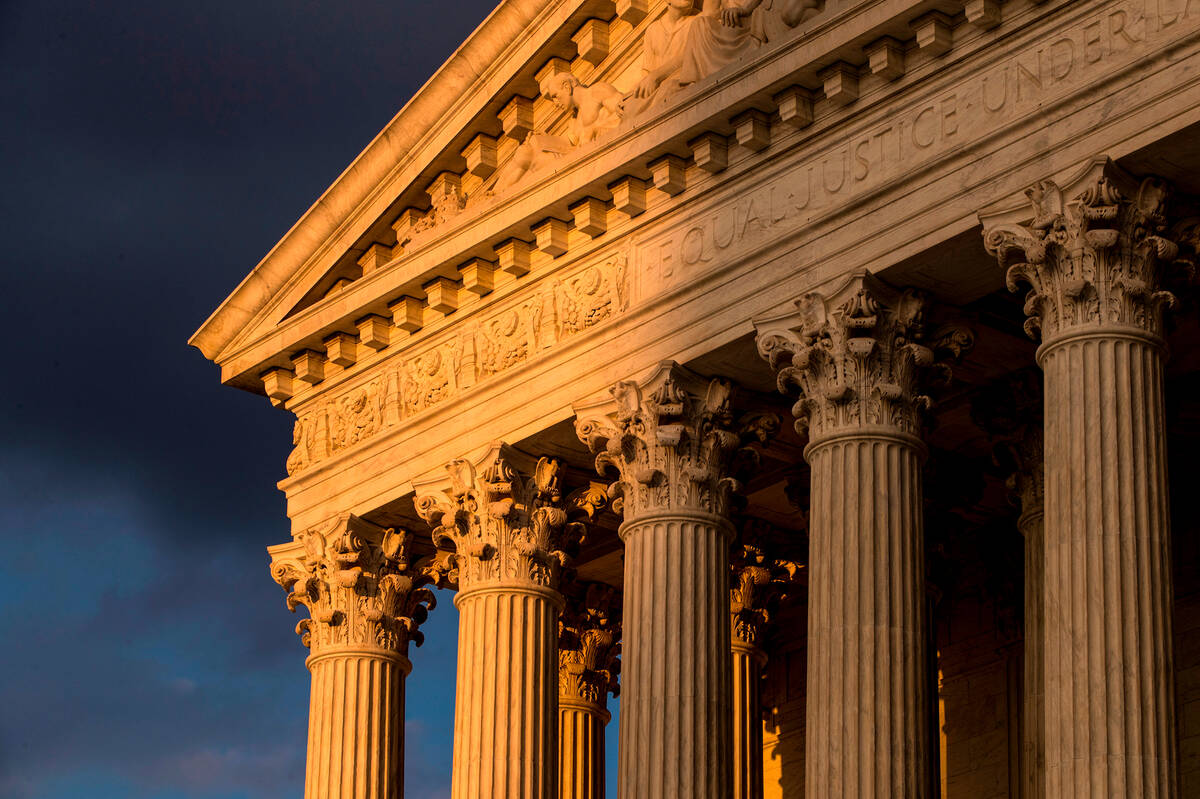COMMENTARY: Supreme Court defends constitutional limits
In an era when the judiciary is often seen as a battleground for ideological warfare, the recent rulings from the Supreme Court deserve commendation for a principled defense of constitutional limits, individual rights and the foundational tenets of American democracy. On the final day of this term, three pivotal cases emerged that, overwhelmingly, favored a conservative understanding of governance and personal freedom, particularly echoing President Donald Trump.
First, we must address the landmark decision surrounding Trump’s executive order on birthright citizenship. The court, in a 6-3 ruling led by Justice Amy Coney Barrett, rightly asserted that the practice of issuing universal injunctions by District Court judges is not only unprecedented but also an encroachment on executive power.
For too long, district judges have wielded their authority as if they were the arbiters of national policy. This dangerous precedent threatens the checks and balances essential to our government. The Supreme Court’s decision underscores that judicial power must be confined to the boundaries outlined in the Constitution and by Congress. Barrett’s opinion starkly reminded us that the courts should not overstep their role, reinforcing the notion that the law should apply based on particular cases without imposing nationwide decrees.
The second significant case concerning educational policy in Montgomery County, Maryland, further reflects the court’s commitment to religious freedom. Parents rightly took issue with a local school board’s decision to enforce mandatory inclusion of LGBTQ+ themed materials in elementary classrooms without offering a means of opting out.
Justice Samuel Alito, articulating the majority opinion, asserted that the state cannot condition access to public education on acceptance of ideologically charged materials that undermine parental authority and religious beliefs. This ruling is a profound affirmation of parental rights and a bulwark against the encroachment of state ideologies into the sanctity of the family. It is not merely a matter of educational content; it is a clarification that the exercise of religious freedom is paramount and must be respected within our public institutions.
Finally, the decision regarding the Texas law mandating age verification for access to sexually explicit content online showcases the court’s recognition of the government’s duty to protect children from harm. Justice Clarence Thomas’s ruling, while contentious, emphasizes the necessity of ensuring minors do not encounter such material freely. Contrary to the dissenting voices who might assert a violation of First Amendment rights, this decision rightly positions the protection of children not as an infringement upon liberties but as a legitimate and necessary exercise of state power.
These three cases collectively illustrate the Supreme Court’s commitment to conservative jurisprudence, upholding individual liberties, promoting religious freedoms and strengthening parental rights. They signal a broader recognition of limits on judicial authority, ensuring that no one branch of government can unilaterally impose its will on the populace.
Each ruling reaffirms the principles designed to maintain a balance of power and protect the rights of citizens against overreach, whether from the state or the judiciary itself.
As we reflect on these decisions, let us be grateful for a Supreme Court that dares to uphold constitutional values amid societal currents that often seek to undermine them. In doing so, it has not only secured a victory for legal conservatism but has also provided a defense for fundamental liberties that are the hallmark of our national ethos.
Craig J. DeLuz is a Project 21 ambassador and has 30 years of experience in public policy and advocacy. He wrote this for InsideSources.com.

















